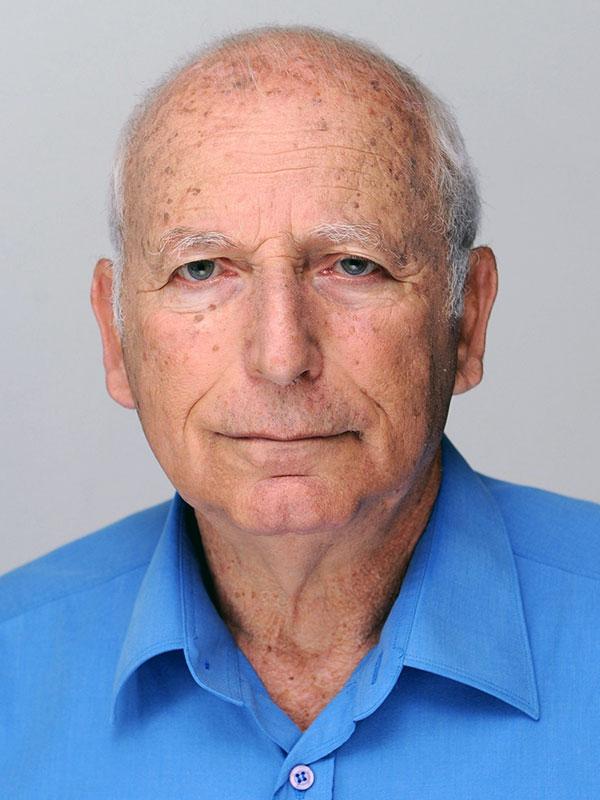Meir Brand was born in 1936 in Bochnia, Poland, the younger of two sons in an affluent religious family. In August 1943, sensing the end of the ghetto where they had lived for two years, his parents decided to smuggle him out. Meir’s father gave his son a tag with a note inside requesting that Meir be raised as a Jew. Afterwards, he explained to the seven-year-old boy the significance of the parting, and gave him a Polish name-Dudek-Jozef.
The parents paid a Pole to take Meir and his cousins Miriam and Itek to safety. After a three-week hike to the Slovakian border, Meir arrived alone in Budapest. There, he joined the refugees and orphans who slept under bridges by night; by day, they collected fruit and vegetable scraps from the markets and plundered bombed-out homes to survive.
In April 1944, he was taken in by Bertha Rubenstein, a member of the Zionist underground. Rubenstein hid Meir and other Jewish children, frequently changing hiding places. In June, she and Meir left Budapest on the Kastner train, arriving at Bergen Belsen, where they remained for the next eight months.
They were liberated in April 1945, and went to Switzerland. In August 1945, he received a visa, and emigrated from Italy to Eretz Israel. In September, a Belgian uncle contacted him after discovering his name on a list of survivors. The uncle told Meir that his parents Shoshana and Ya’akov and older brother Shimon had been deported to Auschwitz and murdered there.
Meir settled on Kibbutz Neveh Eitan with a relative, and in 1954 enlisted in the IDF. He participated in all of Israel’s wars from the Sinai Campaign to the First Lebanon War. Meir studied Agricultural Economics, and was both farm coordinator and treasurer of his kibbutz. Later, he managed the meat division of the Tnuva cooperative, and after his retirement joined an office of economic consultants.
Meir is married to Hanna. They have three sons and eight grandchildren.








